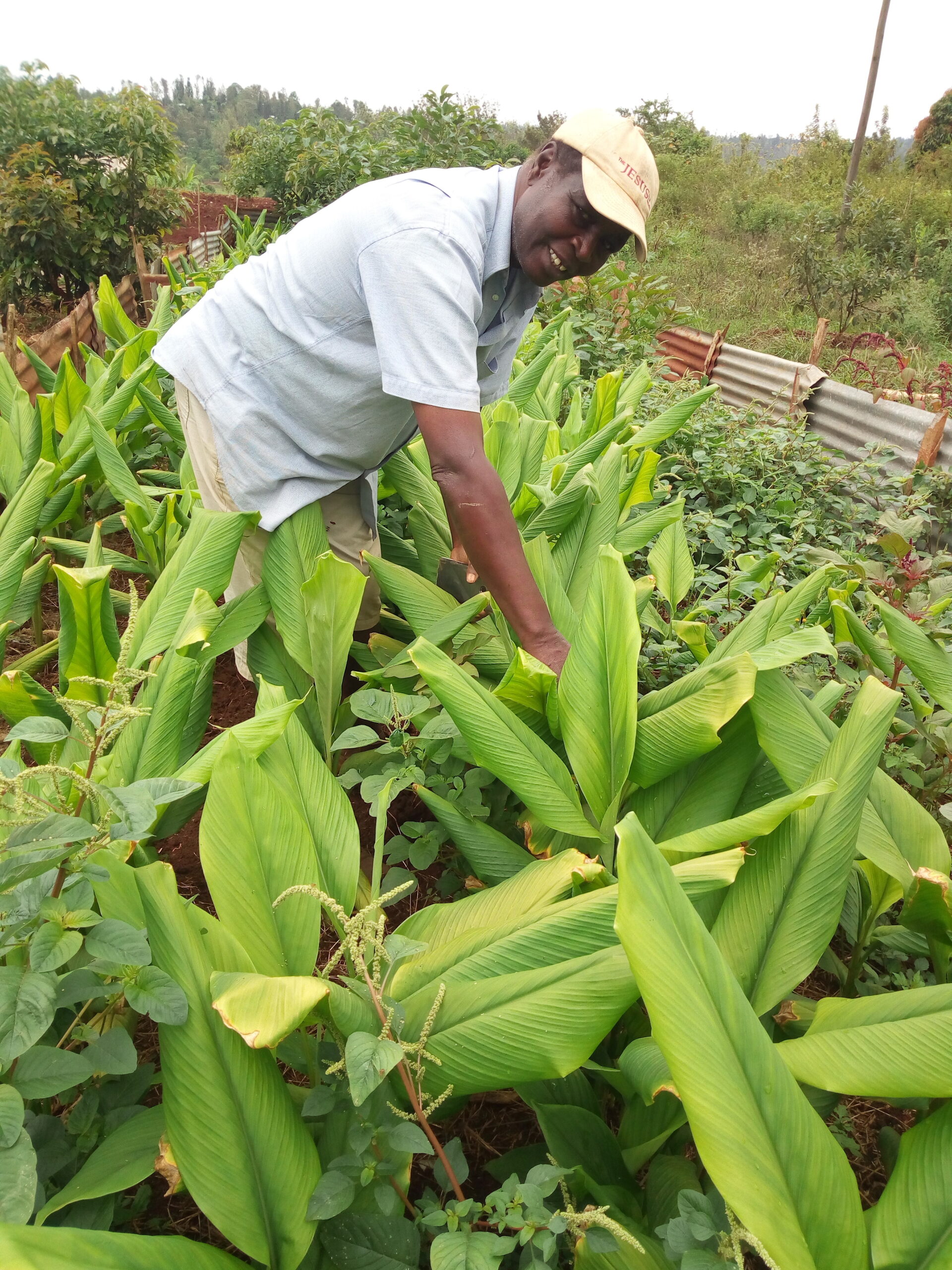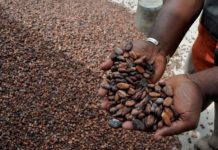
For many years farmers in the central region of Kenya have relied on coffee farming as their mainstay crop with the region accounting for over 60 per cent of its production in the country.
However, since the industry started facing serious challenges such as urbanisation which has seen coffee bushes cleared to pave way for real estate development, theft of the berries and poor pricing, farmers have been shifting to horticulture and herbs and spices to boost their income.
One such farmer is George Njoya Wango, a small-scale farmer from Maragua in Murang’a County who is laying ground for commercial production of turmeric after coffee disappointments.
As the CEO of Peasant Coffee Farmers Association (PCFA) in 2016, Njoya who is also a masters graduate in Transformation Leadership from Makerere University in Uganda got frustrated by the ever occurring problems of coffee farmers even after a task force was formed by President Uhuru Kenyatta to look into the ailing sector.
“I remember we mobilised our farmers to do organic coffee production which could fetch Sh300 per kilo of coffee berries compared to Sh30 a kilo of those by conventional farming but the whole system was hacked by cartels causing poor prices, increased thefts of berries in addition to threats to farmers’ leadership,” said Njoya.
On seeing that coffee was never a safe venture, he left with other farmers to join the now-lucrative avocado farming in 2017.
After planting his over 400 trees of hass variety of avocado which takes 3-4 years to mature, there arose an urge in him and other growers as to which high value short-term plants that can be intercropped with the avocadoes to keep them earning as they wait for the first fruits.
“We had several options such as strawberries, garlic, ginger, indigenous vegetables and onions that could do well in between avocado trees spaces,” said Njoya.
Through friends, he would later towards end of 2018 meet Mr. Oliver Ndegwa who had already started Turmeric Kenya Ltd and was looking for willing farmers to grow turmeric commercially.
Ndegwa introduced him to turmeric farming through his main idea of mobilising farmers to grow turmeric, venture into value addition for ready and well-paying local and international markets.
It became an impressive idea and the two agreed to give it a programme approach by starting some companies to separately deal with farmers mobilisation, production and marketing of the produce.
“We also agreed to approach the whole venture step by step whereby we could have a formative stage for calculating production and acreage needed for our first target of 400MT of turmeric rhizomes, piloting stage for trials, roll out and later commercialisation,” said Njoya.
In this, three companies were registered; Turmeric Ofarm Kenya concerned with organic production of the spice, Turmeric Kenya Ltd for marketing of the produce and Turmeric Ofarm Association of Kenya as an umbrella body for all turmeric farmers in Kenya.
Plans are underway to also start Turmeric Africa Network Ltd for coordinating production, marketing and consumption of herbs and spices that include turmeric in entire African continent.
To effectively achieve this ambitious goal, the duo have decided to partner with institutions such as Kenya Agricultural and Livestock Research Organization (KALRO), Kenya Industrial Research and Development Institute (KIRDI), Jomo Kenyatta University of Agriculture and Technology (JKUAT), Kenyatta University (KU), Kenya Plant Health Inspectorate Service (KEPHIS), the Ministry of Water and financiers.
“These institutions,” said Njoya, “will help with financial support, research, seed multiplication, seed inspection and registration, technological approach advisory, provision of value addition facilities and irrigation services to farmers.”
 George Njoya tending to his three-month-old turmeric crops in a small demo farm in Maragua, Murang’a County. Photo by Zablon Oyugi.
George Njoya tending to his three-month-old turmeric crops in a small demo farm in Maragua, Murang’a County. Photo by Zablon Oyugi.
Mobilisation of farmers
Having worked with farmers for many years now and with good connection with farmers within Mt. Kenya where the project was designed to first take off, Njoya has been mobilising farmers with interest in turmeric production.
Currently, the 60 plus years old farmer has been able to bring on board farmers in 16 clusters or groups with 20-40 individual farmers since towards the end of 2019 when the programme was started.
“So far, we have farmers from Nyeri, Embu, Meru, Kirinyaga, Kiambu, and Murang’a who have registered with us to grow garlic,” said Njoya.
All is needed from the growers is to have the will to grow turmeric, have a reliable source of clean water for irrigation if need be and own at least a quarter of an acre and at most an acre of a plot.
For those who have smaller plots such as an eighth of an acre are required to partner with colleagues with more or same measure to register their farms as one entity.
There is also an option of vertical farming whereby an eighth of an acre can host more plants than an acre open field but the technology will need more investment from the side of a farmer.
“Our registered farmers already have their farms prepared and just waiting for the seedlings to plant. They ought to have planted but the planting materials which were imported from India are still waiting for clearance at the Port of Mombasa by the Ministry of Heath due to COVID-19 concerns.”
Once this pilot stage is done, the programme will be rolled out for all farmers in the country who are willing to grow the spice.
Agronomical support
To further help the farmers, Njoya says that they have teamed with an agronomist with a vast understanding of organic farming who will be helping with agronomical services.
“In addition to the agronomist, we have also developed a technical system where farmers will be required to channel their queries via phone calls for professional help,” said Njoya.
In case of serious cases the agronomist will be facilitated to visit farmers and have one-on-one sessions with farmers.
Investment and production
According to Njoya, an acre will require an investment of between Sh350,000 and Sh400,000 for seeds, water, manure, and labour.
Now, turmeric takes 6-9 months to mature and harvest depending on variety among other factors.
“As per our initial calculations, an acre can yield up to 15,000 kilos of wet turmeric rhizomes and 10,000 kilos when dry which is the best state to sell them,” Njoya said.
A kilo can sell at Sh200-400 depending on variety and demand translating to Sh2,000,000-4,000,000 if sold dry and Sh3,000,000-6,000,000 sold when wet.
If divided by 9 months maturity waiting period, for instance, it means a farmer will be earning over Sh300,000-600,000 a month.








